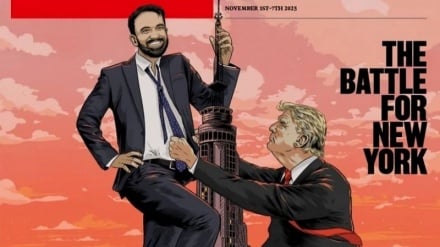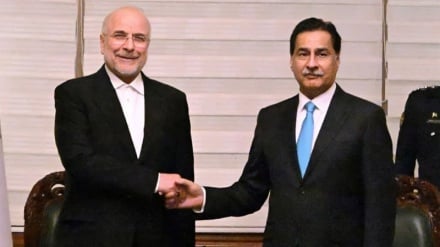US loving suchlike China
-
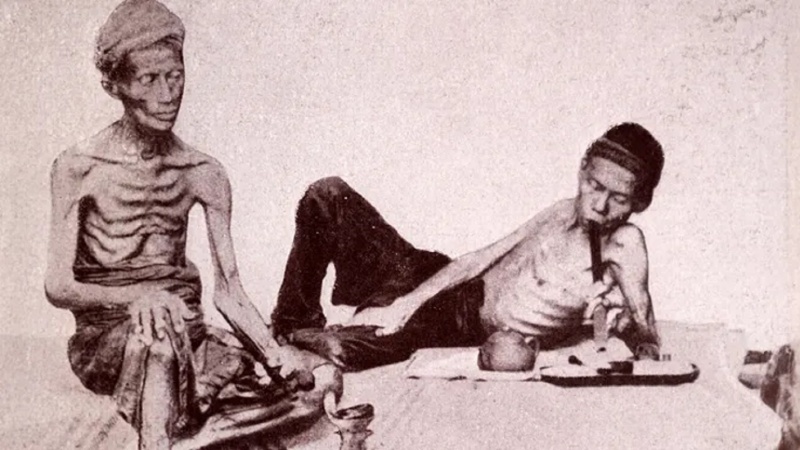
US loving suchlike China
Pars Today- Opium used to have medical usages in China in old times.
The East India Company had come to the conclusion, in its trade with China, that it might be able to barter opium for silver in trade with the Chinese side.
Since the consumption of opium for nonmedical purposes was illegal in China, the East India Company, in order that the Chinese Empire would not be forced to react severely, benefited from independent firms as go-between in opium trade to China. Thus, the East India Company tried to exonerate itself from opium smuggling to China.
The amount of opium smuggled to China by the company in the years 1820- 1828 was tripled and in 1832 increased was doubled to reach 1500 tons per year.
The British Empire, that during the first years of spreading its dominance in the Atlantic, has used the addictive plant called tobacco, realized that it could use another plant called poppy as a tool to harness China.
According to researches, till 1830, nearly 4- 12 million Chinese men were addicted to opium.
Then, the Chinese enforced stricter limitations of opium trade in the middle of the 19th century, Britain garnered gargantuan profit in this trade. In 1839, Britain entered the war with China, a war that was known as the First Opium War. Britain's victory in the war led to the upsurge of opium imports to China.
In July, 1842, British soldiers closed the rout of the great canal of grains imports to China. Beijing was exposed to famine and Emperor Daoguang was forced to reconcile with Britain.
Then Treaty of Nanjing was humiliating because it had imposed huge indemnity on the opium it had already seized.
On March 3, 1857, Britain and France declared war against China and the Second Opium War broke out and continued till 1860 which resulted in China's military defeat. In the course of the war, other world powers had joined Britain and France. According to the final agreements of the Second Opium War, then Chinese government, lacking adequate military power, accepted to legalize opium trade with Britain which led to addiction of more Chinese.
According to these agreements, the Chinese government accepted to open its port cities towards then powers, not to put customs on imports from them, not to prevent the migration of "hardworking and low-waged" Chinese workers to North America (then Canada and US) and the colonies of [world] powers, and allow their warships to enter the Chinese ports. It also agreed not to prevent the activity of Christian missionaries and conclude every treaty in English language.
William Jardine, British merchant of opium in those days, had said, "As far as I know, opium trade is the surest and most decent barter that a gentleman can be engaged in."
Following are some of the pictures on this issue:
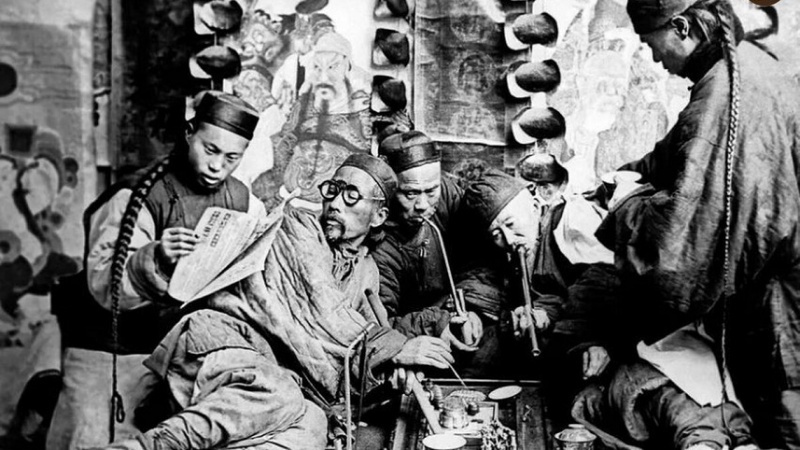
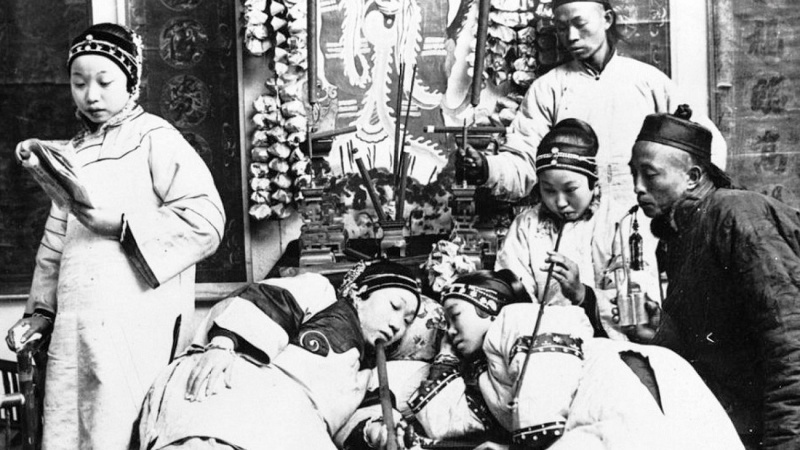
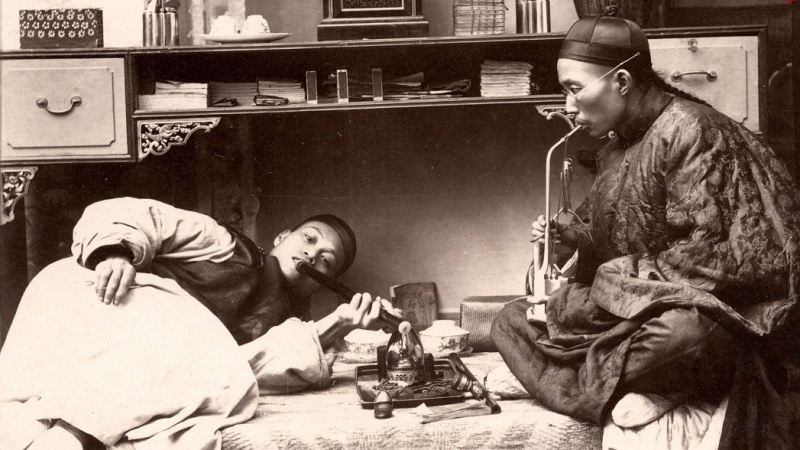
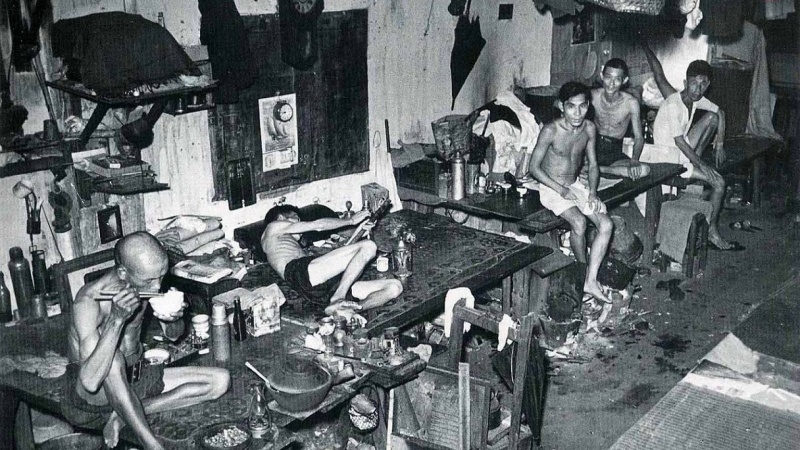
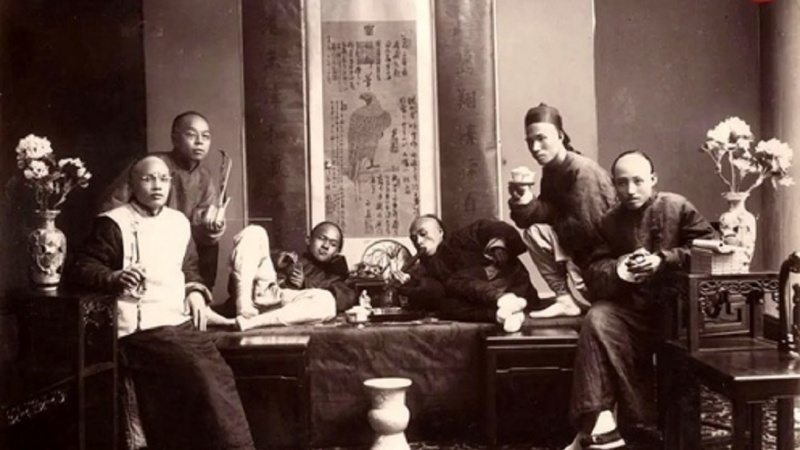
RM/ME
